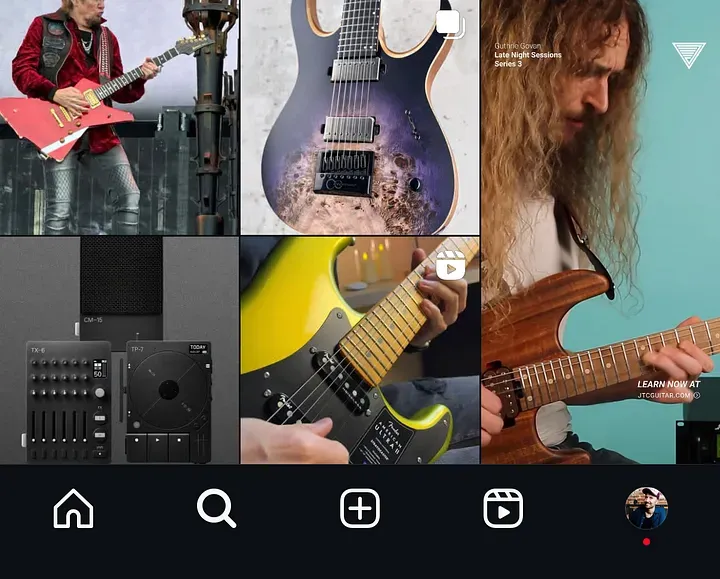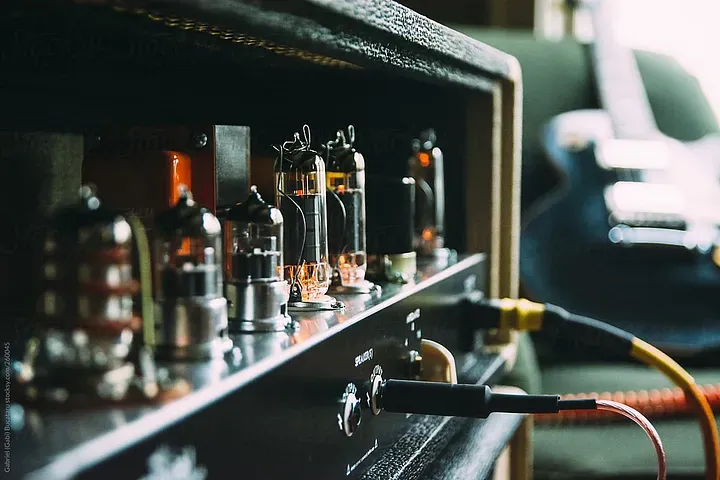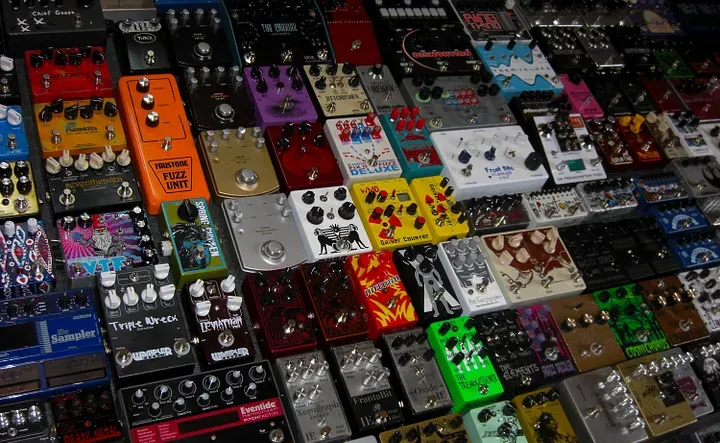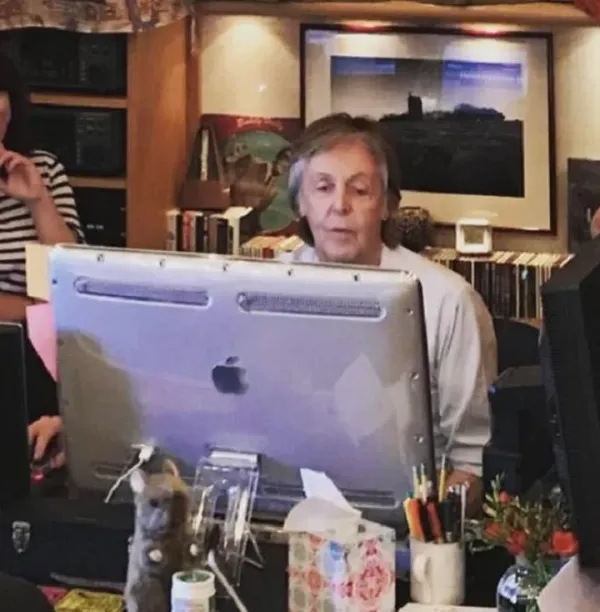Why everyone you know is picking up the guitar again
From Swifties to software engineers, the guitar is getting people off screens, and into something real

Here’s a fun game to play the next time you’re out with friends, if you dare.
Ask everyone to whip out their phones and show off what their Instagram Explore page looks like. Be careful. You might uncover hideous truths about your friends you could never have dreamed of.
Mine, though? It reveals what everyone who knows me already knows: I love guitars.
Playing on my own terms
I’ve been playing guitar since I was about 13 years old. My dad’s old Epiphone acoustic had always been sitting unloved in the living ever since I was born, but on one day, on my own volition, I had the thought: You know what? I think I want to play that thing.
It wasn’t like the piano lessons they made me take, which I hated. Or the soccer practices they dragged me to kicking and screaming. The guitar wasn’t placed in my hands by somone else. I picked it up myself. And it’s for that reason I fell in love with it.
I’ve been playing on and off ever since. I’ve been in bands, written songs, put out music. Never had enough success to really make a living out of it, but it’s always been the hobby waiting on the back burner. The thing I reach for in the rare moments when I have nothing but time.
Lately, though, I’ve noticed something: more and more people are picking up the guitar. Not just musicians. Not just teens. Everyone. And I’ve been wondering, why now?

Guitar sales are up. But why?
On social media, my feeds are full of guitar stuff. Sure of course, it’s content targeted at me, a meta-advertising-profile-confirmed guitar-nerd. But I’ve also been seeing people well outside of my demographic picking it up.
Fender has reported steady increases in guitar sales year-over-year, and they’re not the only manufacturer seeing increased interest.
Part of this, undoubtedly, is the Taylor Swift effect. She’s become a songwriting icon often seen with a guitar in hand, inspiring a new generation, especially young women, to follow her lead. Fender leaned into this years ago, noting the growing percentage of new players who were women.
But it’s not just women. It’s everyone.
It’s not about guitar heroes anymore
What’s interesting is that we are decidedly not living in an era of guitar gods. There’s no Jimi Hendrix of 2025. No Eddie Van Halen or Steve Vai lighting up arenas and inspiring a wave of carnal shredders.
One could argue Tim Henson of Polyphia comes close, but even he is still mostly idolized by the technical guitar crowd. Polyphia hasn’t exactly broken into Top 40. He’s cute, so hey, it could still happen.
But if it’s not about the rock god fantasy, what’s driving this resurgence?
The Guitar is REAL
Here’s my theory: the guitar represents a connection to reality that we barely get to experience anymore.
Electronic music is incredible; limitless experimentation, ambience, groove. But it’s computer music. It’s made inside software, exported from software, played back through software, and plugged into the PA via the laptop’s aux. Yes, DJs just hit play. (Don’t @ me, that’s deadmau5!)
The guitar, on the other hand, is wood, wires, and blood.
Nickel-plated strings manipulated by the flesh of your fingers; the guitar is gloriously imperfect. You can make mistakes, land wrong on the frets, miss the notes, fumble the strum.
You can hear the friction of fingertips swiping down the strings, amplified through a 100-watt Marshall stack, picked up by a microphone and blown out through the concert venue. It’s humanity electrified through transistors and rectifier tubes. Flaws and all.
The guitar represents an ownable moment of sonic physicality, expressed as loud as you can can crank it. And therein lies the freedom: the freedom to be heard, the freedom to wail, the freedom to express your internal voice externally, as loudly as your speakers can handle. The guitar is alive.

We’re all craving something tangible
Yes of course, music and guitar software has enabled sound-shaping and tonal opportunities beyond what Neil Young could ever have dreamed in the 1970s. The appeal of the guitar though is that if you want it to exist exclusively in the real world, it can exist exclusively in the real world.
Boutique pedal manufacturers are designing crazy circuits faster than any plug-in engineers can emulate them. This is an IRL thrill for hobbyists, collectors, and guitar nerds, searching for the wildest sounds they can find and hold on to with their hands, no screen required.

Nearly everyone I know spends most of their days on the computer. It’s not just software engineers anymore, but marketers, doctors, lawyers. Many non-computer jobs are now computer jobs.
And these days especially, we have AI processing the data, the cloud digesting it, and increasingly fewer humans interpreting it a bit just to push it back out again, where it’s consumed by patients, clients, and customers again, likely on their own screens.
The guitar is back because it’s real.
Real music, real people, really cool guitars
The guitar is a playground for humans, to convert electricity into sound and back again—minds connected to fingers, fingers to strings, strings to amplifiers into speakers, to be heard by ears that convert sound back into electric impulses, tickling the brain and launching us screaming into the realms of rock and roll.
I love seeing more people pick up the guitar. I love seeing people make art in the real world. And I really love that even my Instagram feed absolutely shreds.



